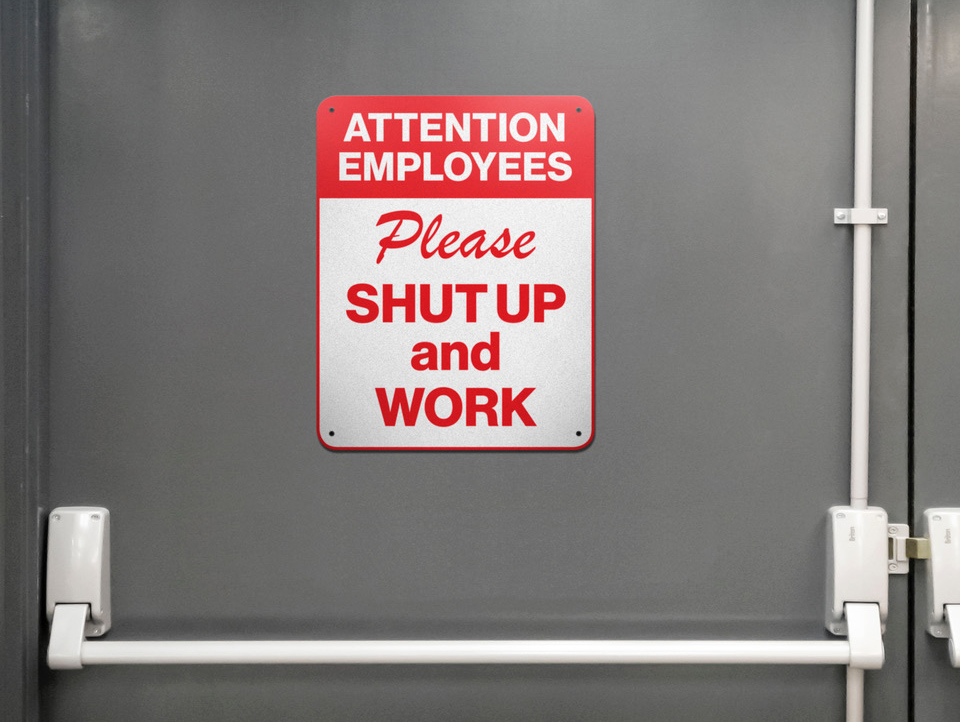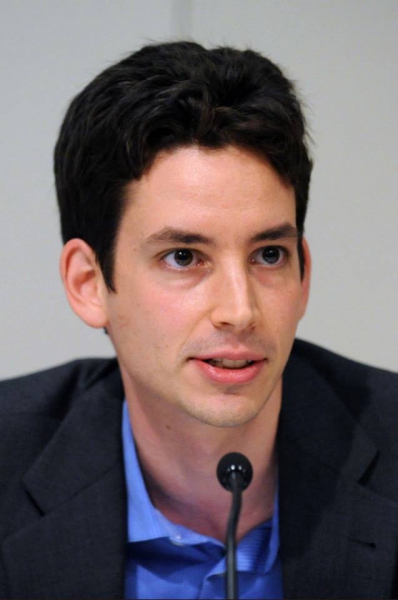Josh Eidelson wins September Sidney for Exposing an Epidemic of Corporate COVID-19 Gag Orders
The Sidney Hillman Foundation announced today that Josh Eidelson of Bloomberg Businessweek has won the September Sidney Award for “Covid Gag Rules at U.S. Companies Are Putting Everyone at Risk,” which shows that major companies are covering up COVID-19 cases by forbidding staffers from disclosing that they or a coworker has tested positive.
Lindsay Ruck filed a complaint with the National Labor Relations Board (NLRB) after her boss told her she wasn’t allowed to discuss the fact that a fellow employee at the Cheesecake Factory had tested positive for COVID-19. Workers have a legal right to be informed of workplace hazards, but the Board has no legal power to punish employers who violate this right with COVID-19 gag rules. Many thousands of Occupational Safety and Health Administration (OSHA) complaints have also been filed, yet only two have resulted in a citation.
Workers at Amazon, McDonald’s, Target, Cargill and other nationally known companies told Eidelson that they’d been ordered to stay quiet about COVID-19 cases in their ranks. Smithfield, General Electric and Urban Outfitters have racked up complaints to OSHA for doing the same thing. By the end of May, OSHA had received more than 1,600 whistleblower complaints related to COVID-19 as well.
“This investigation showed that COVID-19 gag orders are both common and illegal,” said Sidney judge Lindsay Beyerstein. “Yet, employers enjoy virtual legal impunity because enforcement is so weak. OSHA and the NLRB have failed to make companies obey the law.”
Josh Eidelson covers the workplace for Bloomberg News and Bloomberg Businessweek. His work has appeared in outlets including the Washington Post, The Nation and Reuters. He has been honored by groups including the San Francisco Press Club, the Society of Professional Journalists — NorCal and the Labor and Employment Relations Association. He welcomes tips at jeidelson@bloomberg.net.

Backstory
Q: How did you find workers who are subject to COVID-related gag orders?
A: This piece emerged as, in talking to workers and advocates and following litigation related to the pandemic, I started hearing similar stories from employees across disparate companies: People being told by their bosses not to talk about COVID-19 cases - including in some cases the fact that they themselves had the virus. That made me wonder how widespread this was. So I reached out to sources in different industries to find out.
Q: What kinds of documents did you use to research this story?
A: At the heart of this story are two things: Interviews with workers, and documents. Those include complaints filed with OSHA, the National Labor Relations Board, and county health officials; lawsuits; and the transcript of a court hearing. (I rely a lot on making spreadsheets to keep track of things for stories like this.)
Q: Is it legal for employers to forbid their workers from disclosing their own COVID status?
A: One of the ironies here is that workers say they’ve been told federal laws are the reason for censoring them about COVID-19, when in fact federal law protects workplace conversations about it. Statutes including the Occupational Safety and Health Act and the National Labor Relations Act recognize employees’ right to communicate, raise concerns, and protest about workplace conditions including safety hazards. But the enforcement of those laws is too weak to offer much deterrent to companies on a silencing spree.
Q: Explain how workers are using laws against public nuisances to hold employers accountable for endangering the public with COVID coverups. If a company conceals a COVID outbreak and employees (or customers) get infected because of the coverup, can the victims sue the company?
A: In the absence of stronger federal enforcement of workplace protections, workers are turning to a range of tactics, including public protest, private data-sharing, and appealing to city and state officials for help. One of those tactics is “public nuisance” lawsuits, which are more often associated with offenses like noisy concerts, but have recently been deployed against companies whose mishandling of the pandemic allegedly harmed the public.


